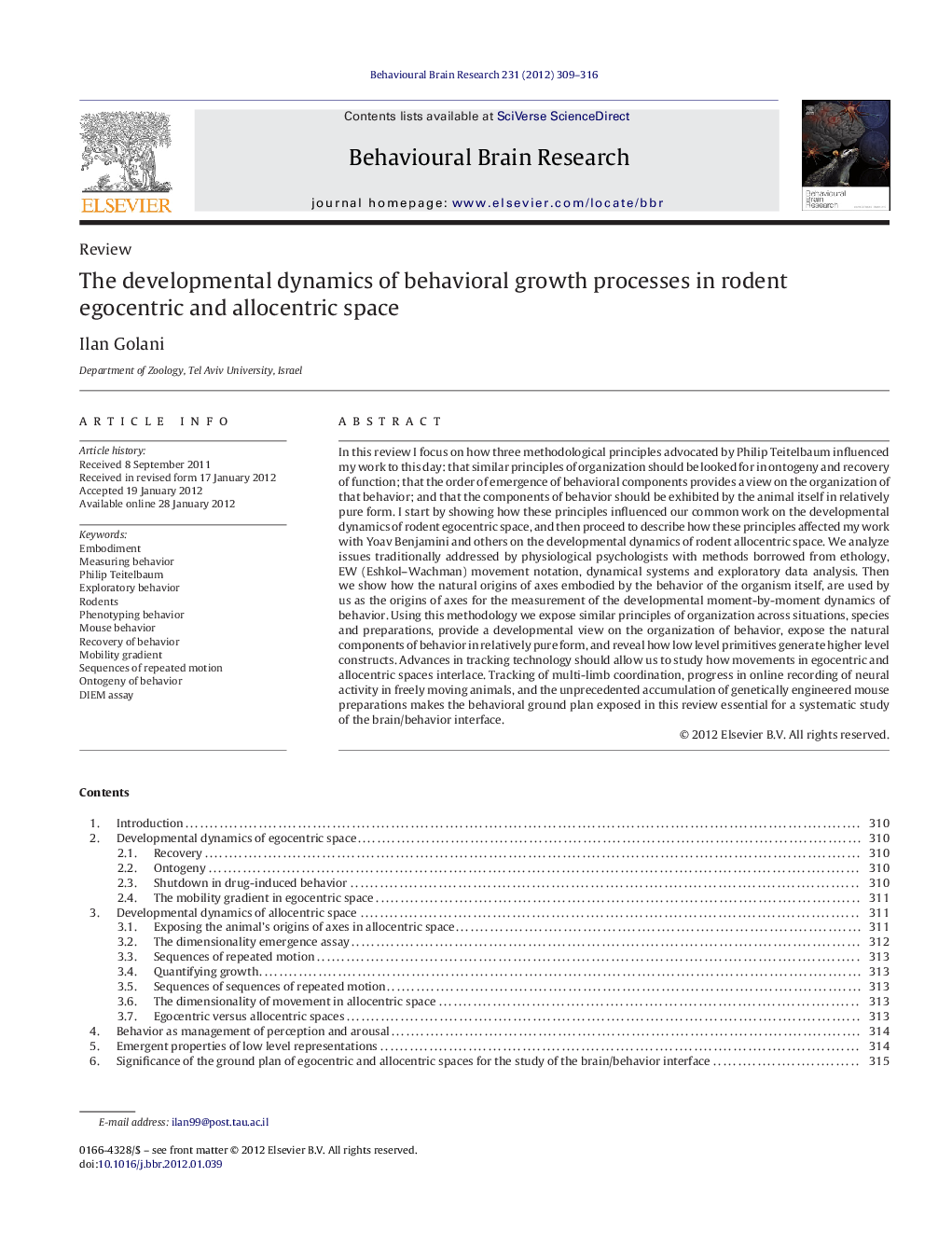| کد مقاله | کد نشریه | سال انتشار | مقاله انگلیسی | نسخه تمام متن |
|---|---|---|---|---|
| 4313074 | 1289984 | 2012 | 8 صفحه PDF | دانلود رایگان |

In this review I focus on how three methodological principles advocated by Philip Teitelbaum influenced my work to this day: that similar principles of organization should be looked for in ontogeny and recovery of function; that the order of emergence of behavioral components provides a view on the organization of that behavior; and that the components of behavior should be exhibited by the animal itself in relatively pure form. I start by showing how these principles influenced our common work on the developmental dynamics of rodent egocentric space, and then proceed to describe how these principles affected my work with Yoav Benjamini and others on the developmental dynamics of rodent allocentric space. We analyze issues traditionally addressed by physiological psychologists with methods borrowed from ethology, EW (Eshkol–Wachman) movement notation, dynamical systems and exploratory data analysis. Then we show how the natural origins of axes embodied by the behavior of the organism itself, are used by us as the origins of axes for the measurement of the developmental moment-by-moment dynamics of behavior. Using this methodology we expose similar principles of organization across situations, species and preparations, provide a developmental view on the organization of behavior, expose the natural components of behavior in relatively pure form, and reveal how low level primitives generate higher level constructs. Advances in tracking technology should allow us to study how movements in egocentric and allocentric spaces interlace. Tracking of multi-limb coordination, progress in online recording of neural activity in freely moving animals, and the unprecedented accumulation of genetically engineered mouse preparations makes the behavioral ground plan exposed in this review essential for a systematic study of the brain/behavior interface.
► Reviewing the influence 3 methodological principles advocated by Teitelbaum had on subsequent research.
► Using the animal's own origins of axes as origins of axes for measurement exposes invariant behavior.
► Rodent egocentric space is organized in reference to immobility.
► Rodent allocentric space is organized in reference to the animal's home base.
► Exploratory behavior consists of a sequence of sequences of repeated motion.
Journal: Behavioural Brain Research - Volume 231, Issue 2, 1 June 2012, Pages 309–316